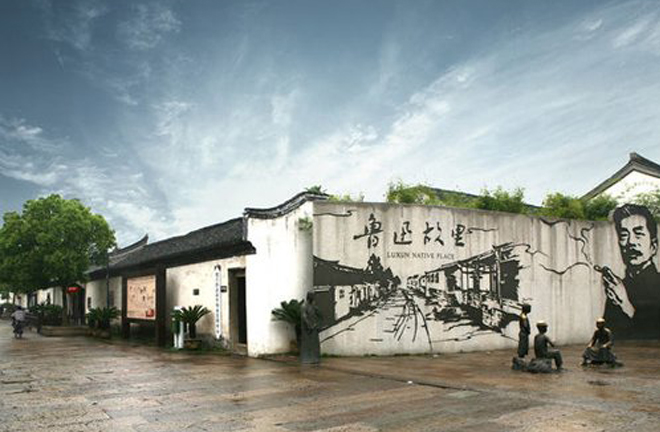Studies on Chinese writer Lu Xun have diversified

Former residence of Lu Xun in Shaoxing, Zhejiang Province
A symposium was held recently in Beijing to commemorate the 100th anniversary of A Madman’s Diary, Chinese writer Lu Xun’s first novel written in vernacular. The Beijing Lu Xun Museum and the Chinese Institute for Lu Xun organized the event and invited more than 30 scholars from universities and research organs around the country to exchange views on the beginning of modern vernacular fiction and how Lu Xun used literature as a weapon against people’s numbness. Topics such as scrutinized examination, comparative studies and research history of the major work were also involved. The participants visited the former residence of Lu Xun and his brother Zhou Zuoren at Xinjiekou, Beijing.
Huang Qiaosheng is the executive deputy curator of the Beijing Lu Xun Museum. In his speech at the symposium, Huang pointed out that A Madman’s Diary, authored by Lu Xun charted a new course for Chinese literature.
A Madman’s Diary is Lu Xun’s first well-known work and the prelude to his literary life. Published in the New Youth magazine on May 15, 1918, it was a major work of Chinese new literature that originated from the New Culture Movement together with his other masterpiece The True Story of Ah Q. It was an inspiration for later writers to further explore themes of national awakening and progress.
The symposium papers submitted by the attendants cover a broad range of perspectives. Some collect reliable historical materials to present the cultural environment of A Madman’s Diary. Some tend to probe Lu Xun’s relationship with Friedrich Nietzsche and the theory of evolution while a number of them scrutinized the texts from two major sides. One side touches upon mindset, society and history and the other side refers to the system of linguistic expression. With respect to historical context, other papers speculate about the history of literature. In this way, these studies have outstripped past discourse analysis and value frameworks.
At the symposium, scholars also shed light on Lu Xun’s relationship with the Hundred Day’s Reform as well as the Revolution of 1919 and compared his works with those written in the late Ming Dynasty. They proposed emphasizing the philosophical and paradoxical nature of studies so that the stereotyping that hinders Lu Xun research can be tackled. The insightful discussion at the event is a testament to the scholars’ explorative spirits, further promoting the ontological literary analysis of the writer Lu Xun.
(edited by MA YUHONG)
